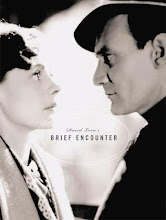Wednesday, June 9
THE DISCREET CHARM OF LA MEGLIO GIOVENTU
This 6 hour Italian film directed by Marco Tullio Giordana follows the life of two brothers, Matteo and Nicolo, from 1966 when they begin as idealized youths and undergo transformations with changes in the personal, social and political environs. La Meglio Gioventu [ The Best of Youth] is however, a very simply story told with an emotional pace which draws you in for all the 6 hours. Their lives change when Giorgia, an inmate of the mental asylum comes in to their lives-both of them are disgusted by the abusive treatment of electro-shock therapy, and take her away from the institution, en route their trip to Norway. She is captured by the police, and the brothers part ways there, with Matteo cutting short his trip being repulsed and angered by his helplessness. Matteo enlists in the army and Nicolo continues to Norway.
The film has amazing characters; all idiosyncratic personalities in their own right. No brief interlude is marked by forgettable characters, that way; the story line is so taut and restrained. What I hated however, was the gross error of unimportance served on some pivotal characters. For instance, Luigi Lo Cascio who plays Nicolo is the nearly omnipresent character on screen, every story comes full circle to Nicolo’s which tilts the theme of the film in an utterly conventional direction. The story is filled with wonderfully different men and women, surprisingly-women who are essential to the story in their difference yet tracing Nicolo’s life from 1966 to 2000 faithfully means an idealized youth, a radical psychiatrist, brilliant father, patient husband and finally, romantic lover. Contrariwise, look at Matteo Carati. Played by Alessio Boni splendidly, the film opens with his brooding face scanning pages from a book. Atypical because of his opinions, he is highly sensitive, why, he even falls in love with Giorgia. A nonconformist who refuses to appropriate anything, he joins the army:
Sicilian Commissario: What were you looking for, joining the Police?
Matteo Carati: I wanted some rules.
Sicilian Commissario: And what do you do, with these rules?
Matteo Carati: I apply them.
He is unsure about everything, and as years pass by he comes to view himself as a failure which causes him to push his family away and refuse to be committed to a relationship. But I will not be unfair, and place all the credit on Alessio Boni’s acting-the role itself is more interesting, and requires much inner turmoil and anger and conflict. Thus, after seeing his mother on New Year’s Eve, he commits suicide. I was indignant through out the movie, that more attention had not been paid to this masterly role, which would have diminished more of its soap-operatic nature and lend it more perspective than that of a mere family drama.
Yet, what is best about this is how the story moves-in so linear a fashion that all depends on the interaction between characters to make it bright and sparkling. So characters cross paths and that is when there is the story. Ironical as it may seem, in the 6 hours, what the audience receives is a synoptic view of a large family and friends which keep together.
The political consciousness and its influence are subtly played in the film. Mostly encapsulated in the role of Guilia- through Nicolo’s marriage to her we see how she gets involved with a red brigade cell, and has then to be put in prison for her terrorist activities. A complex picture of her character develops, as not only stemming from political ideology but also from a personal crisis of utter distrust. Perhaps just as well, I can imagine, what a great mess political events can add to a family drama. As she gets out of the prison, she has severed her political past completely, and attempts even to reconnect with her daughter, with which she only partially succeeds.
Lastly, we have Giorgia, the mental patient whose life parallels the other characters’. In the end, she is rehabilitated and reintroduced into normal society. We catch only glimpses of her; she comes in, for a few important scenes and the last few ones trace her recovery and her remembrance of Matteo. As Nicolo says of other mental patients; silence is all they have left, and Jasmine Trinca uses silence as an instrument to play her. After all, she started it all in1966 with Matteo and Nicolo-changed their lives and now she’s got to keep silent and watch how the story goes.
Subscribe to:
Post Comments (Atom)







No comments:
Post a Comment